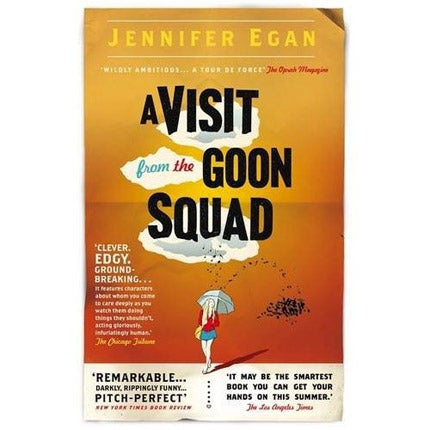A Visit from the Goon Squad, By Jennifer Egan
Ambitious dispatches from America's nattiest frontier

There is a tradition in American storytelling of fractured, episodic fiction that reflects the disjointed framework of life in the States.
From David Schickler's Kissing in Manhattan to Russell Banks's Trailerpark, humanity in all its grime and glory is captured in clipped fashion. Jennifer Egan propels that structure to new dizzying heights with A Visit from the Goon Squad, a novel of interconnecting stories that is as emotionally accurate as it is architecturally adventurous.
The changing face of the US music industry is the backdrop to a series of interlocked stories in which various characters come to the fore at different points. They vary in setting, from New York to San Francisco via the African bush, and in period from the scruffy 1970s to the techno-savvy near future. At the beginning of "Ask Me If I Care", Bennie Salazar is a 1980s high-school kid slamming with his punk outfit, the Flaming Dildos. By the end, he is firmly under the wing of Lou Kline, a middle-aged, perpetually horny music producer. In subsequent tales, the fates of Bennie and Lou, their families, friends, enemies and employees, compensate and conflict with each other. The different chapters in their lives all eventually fade out like tracks on an LP.
The novel is infused with a singularly modern vocabulary, informed by therapy and self-diagnosis, creating an amusing lexicon of love. Relationships, in all their complicated, frenetic and ever-diminishing aspects, are relayed through maxims such as "Betrayal Bonding" and "Structural Resentment". Of course, this being contemporary American fiction at its nattiest frontier, form has to be rethought. At one point, Egan risks a section constructed from Powerpoint pages. It's a testimony to her talent that it pays off, representing yet another decline in communication.
Egan paints a melancholy picture of America. With its all-embracing amendments, this is still a nation struggling to stop itself slipping into a spiritual canyon. For many of these characters, in a reversal of the Rolling Stones classic, time is not on their side. The detours, wrong turns and risky shortcuts that distract us on life's journey are described with a raw intensity. In the story "You (Plural)", the once-virile Lou is now laid out on a bed, IV-fed and dying. Jocelyn, his long-ago younger girlfriend, stares at his shrivelled body and remembers their first encounter: "Seventeen, hitchhiking. He was driving a red Mercedes. In 1979, that could be the beginning of an exciting story, a story where anything might happen. Now it's a punch line."
Egan has a fluid, cinematic style in which passages play out like tracking shots. "The house is the same, except quiet," says Jocelyn, returning to Lou's West Coast house. "I wonder as we follow a maid through a curve of carpeted rooms, the pool blinking at us past every window. What else could have stopped the unstoppable parties?"
If getting lost is this novel's refrain, Egan occasionally changes the key. In particular, the sparky disconnect between generations is sometimes rewired with brief but joyful connections. This is a book that appears to focus on the deterioration of potential, but it's equally interested in the capacity for regeneration that exists in all of us. Proust described our attempts to recapture yesterday's wonders as "hazardous pilgrimages". Likewise, Egan's ambitious novel advises us to take a different route.
Join our commenting forum
Join thought-provoking conversations, follow other Independent readers and see their replies
Comments
Bookmark popover
Removed from bookmarks